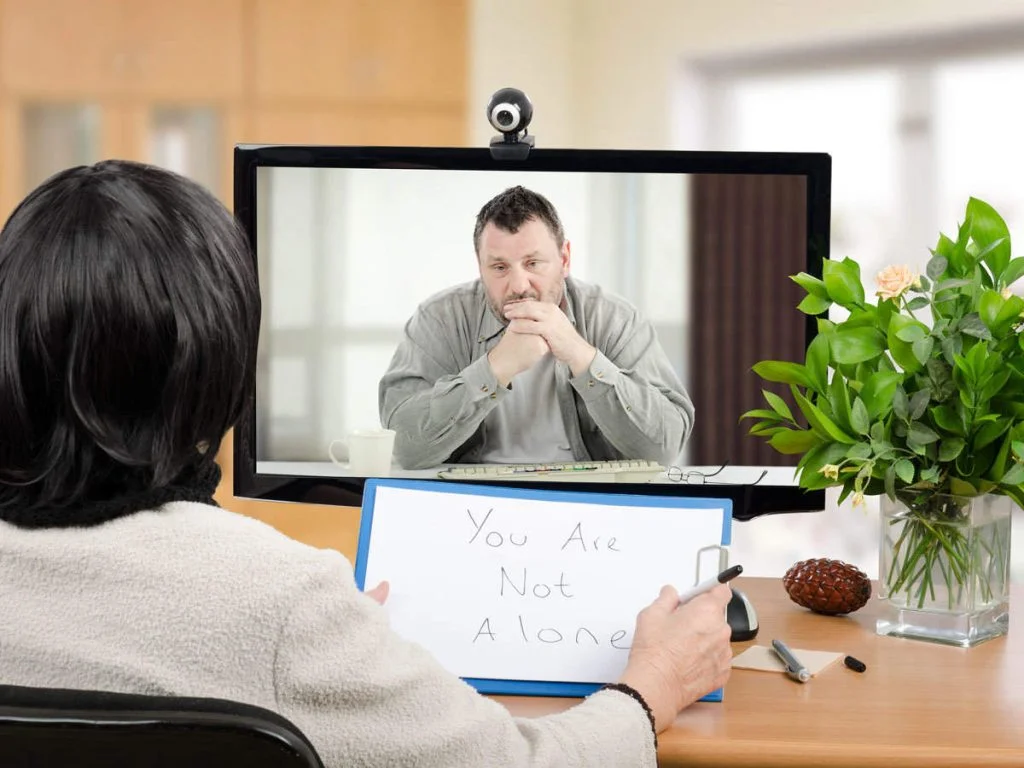Contents
What Is Telepsychiatry?

Telepsychiatry is a relatively new field of psychiatry that involves providing mental health services to patients through telecommunications technology. This can include video conferencing, telephone consultations, and email communication. Telepsychiatry has many benefits, including improved access to care for patients in rural or underserved areas, increased convenience for patients and caregivers, and reduced costs for both patients and providers.
How Does Telepsychiatry Work?
Telepsychiatry uses technology to allow psychiatrists to provide care to their patients remotely. This can be done through video conferencing, phone calls, or secure email. Patients can see and talk to their provider from the comfort of their own home, which can be helpful for those who have difficulty traveling or who live far away from a mental health care provider.
Conditions That Telepsychiatry Help Treat
Telepsychiatry can help treat a variety of psychiatric conditions, including:

- Depression
- Anxiety
- Bipolar disorder
- Schizophrenia
- Posttraumatic stress disorder (PTSD)
- Obsessive-compulsive disorder (OCD)
- Attention-deficit/hyperactivity disorder (ADHD)
- Eating disorders
- Autism spectrum disorder
- Substance use disorders
Benefits of Telepsychiatry
Telepsychiatry offers many benefits for both patients and providers. These include increased access to psychiatric care, increased convenience for both patients and providers, reduced costs for both patients and medical practices, improved mental health literacy, more choices in treatment options, increased opportunities for patient-provider interactions outside of appointments, and increased patient involvement in their own treatment.
(1) Increased access to psychiatric care
Many patients find it difficult to access quality mental health care due to the proximity of providers, availability of appointments, and inability to take time off work or school for appointments. Other patients with disabilities may not be able to travel easily or at all. In many cases, patients don’t even know that telepsychiatry is an option or where to find providers using this technology.
(2) Increased convenience for patients and providers

For patients, telepsychiatry can reduce the time it takes to follow-up with their provider, schedule appointments, take time off work or school to travel to appointments, or be seen in person at all. Additionally, patients can use telepsychiatry to connect with their provider between appointments for counseling or medication management without having to schedule another appointment. The time saved by not scheduling an additional appointment helps both the patient and provider save money on insurance copays, phone bills, and transportation costs.
For providers, telepsychiatry can help providers see more patients and save on overhead costs such as office space, utilities, and equipment. It also helps avoid the challenges of finding reliable childcare, a good babysitter, or a ride to the doctor’s office.
(3) Reduced cost for both patients and providers
Patients benefit from telepsychiatry because it allows them to access psychiatric care from home or work without taking time off, which saves them on transportation costs. Additionally, since telepsychiatry reduces the need for additional office visits, patients save money on insurance copays and phone bills for video conferencing services.
Providers benefit financially by seeing more patients over video than in person. The time saved by not traveling to appointments or scheduling additional appointments allows them to see more patients and save money on overhead costs.
(4) More opportunities for patient-provider interactions
Telepsychiatry can allow providers to counsel their patients between visits, using technology to encourage good mental health habits, improve medication adherence, promote healthy lifestyle choices, and provide education on new treatments. These sessions can be used to prevent relapse and help patients feel more secure in their treatment options.
(5) Increased involvement of patients in their own treatment
Telepsychiatry helps patients take a more active role in their mental health care. It allows them to get medication refills or answer questions between visits, reducing the need to take more time off work or school for appointments. It also requires less of a time commitment from patients, allowing them to make more of their own mental health care decisions.
Drawbacks of Telepsychiatry

Telepsychiatry is not right for all psychiatric patients and can have some drawbacks. These include lack of provider licensure in the patient’s state, a limited number of mental health professionals offering these services to patients, privacy concerns, and electronic data security.
1. Lack of provider licensure in the patient’s state
For some patients whose treatment requires them to see a psychiatrist who is licensed outside of their own state, there may be a lack of providers offering telepsychiatry services. Telepsychiatry is not available in every state, and not all psychiatrists offer this service to their patients. If an out-of-state provider offers telepsychiatry services, the patient will need to be able to travel to where the provider is located in order for them to receive care in person or through telepsychiatry.
2. Limited professionals offering telepsychiatry
According to the American Telemedicine Association, there are currently 571 board-certified psychiatrists who offer some form of telepsychiatry service to their patients.
3. Privacy concerns
Patients may be concerned about privacy when using telepsychiatry services. Such as who can access their medical information and how it will be used. According to the American Telemedicine Association, patient confidentiality is protected by federal law. That states that all electronic medical records must have a code indicating they contain individually identifiable health information and that the patient has a right to that information.
4. Electronic data security
The American Telemedicine Association states that while there are some concerns about telepsychiatry services, they are no more risky than in-person encounters. Providers should use encryption and comply with HIPAA regulations to ensure patient privacy and data security.
When telepsychiatry is not the right choice-
According to an article by Lund and Hall, some patients should not get treatment via telepsychiatry. These include those with acute psychosis or severe autism spectrum disorder, as well as those who are medically frail or uncooperative. Additionally, transportation difficulties may make returning for a follow-up appointment a challenge for some patients.
Telepsychiatry Cost

The cost of telepsychiatry services may vary depending on the provider and the type of service offered. However, most providers offer a sliding scale fee, which means that patients are charged based on their ability to pay. And many insurance plans cover telepsychiatry services, and some providers accept insurance. Patients should ask their provider about what type of payment they accept before scheduling an appointment.
Who Should Use Telepsychiatry?
According to an article by Lund and Hall, some patients should not get treatment with telepsychiatry. These patients include those with acute psychosis or severe autism spectrum disorder. As well as those who are medically frail or uncooperative. Additionally, transportation difficulties may make returning for a follow-up appointment a challenge for some patients.
Telepsychiatry can be a helpful service for many psychiatric patients. It can also reduce the risk of suicide and incarceration. According to some healthcare experts, some patients who may benefit from telepsychiatry include those who live far away from a mental health care provider. And those who have difficulty traveling, those with acute psychosis or severe autism spectrum disorder. And those who are medically frail or uncooperative. Additionally, transportation difficulties may make returning for a follow-up appointment a challenge for some patients.
Conclusion
Telepsychiatry is a great solution for patients who need psychiatric help. But can’t get to a physical therapist. It’s also helpful for psychiatrists who want to offer their services to more people. But the drawback is that some patients feel uncomfortable with the idea of talking to a doctor over the phone. if you are hoping to treat your illness with telepsychiatry, then reach out to us.
A Word From Therapy Mantra
Your mental health — Your psychological, emotional, and social well-being — has an impact on every aspect of your life. Positive mental health essentially allows you to effectively deal with life’s everyday challenges.
At TherapyMantra, we have a team of therapists who provide affordable online therapy to assist you with issues such as depression, anxiety, stress, workplace Issues, addiction, relationship, OCD, LGBTQ, and PTSD. You can book a free therapy or download our free Android or iOS app.


